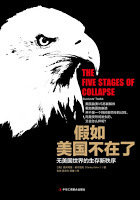Dmitry Orlov's Blog
July 26, 2015
It's really very simple
 [Note: I am pushing this article live two days early because ZeroHedge somehow managed to get a hold of it and post it before I did. Needless to say, I don't like this at all. From now on, if you wish to re-post articles from this blog, you may not. You may, however, publish translations of them.]
[Note: I am pushing this article live two days early because ZeroHedge somehow managed to get a hold of it and post it before I did. Needless to say, I don't like this at all. From now on, if you wish to re-post articles from this blog, you may not. You may, however, publish translations of them.][Credit to Dmitry Leikin, whose brief post at d3.ru served as the source and the inspiration for this piece.]
There are times when a loud cry of “The emperor has no clothes!” can be most copacetic. And so, let me point out something quite simple, yet very important.
The old world order, to which we became accustomed over the course of the 1990s and the 2000s, its crises and its problems detailed in numerous authoritative publications on both sides of the Atlantic—it is no more. It is not out sick and it is not on vacation. It is deceased. It has passed on, gone to meet its maker, bought the farm, kicked the bucket and joined the crowd invisible. It is an ex-world order.
Read more »
Published on July 26, 2015 19:30
July 21, 2015
So you say you don't want a revolution?
 Over the past few months we have been forced to bear witness to a humiliating farce unfolding in Europe. Greece, which was first accepted into the European Monetary Union under false pretenses, then saddled with excessive levels of debt, then crippled through the imposition of austerity, finally did something: the Greeks elected a government that promised to shake things up. The Syriza party platform had the following planks, which were quite revolutionary in spirit.
Over the past few months we have been forced to bear witness to a humiliating farce unfolding in Europe. Greece, which was first accepted into the European Monetary Union under false pretenses, then saddled with excessive levels of debt, then crippled through the imposition of austerity, finally did something: the Greeks elected a government that promised to shake things up. The Syriza party platform had the following planks, which were quite revolutionary in spirit.Put an end to austerity and put the Greek economy on a path toward recoveryRaise the income tax to 75% for all incomes over 500,000 euros, adopt a tax on financial transactions and a special tax on luxury goods.Drastically cut military expenditures, close all foreign military bases on Greek soil and withdraw from NATO. End military cooperation with Israel and support the creation of a Palestinian State within the 1967 borders.Nationalize the banks.Enact constitutional reforms to guarantee the right to education, health care and the environment.Hold referendums on treaties and other accords with the European Union.Read more »
Published on July 21, 2015 00:00
July 20, 2015
书名:假如美国不在了:无美国世界的生存新秩序
 假如美国的崩溃并不是一个耗时数百年的过程,而是突然间发生的,又会怎么样呢?
假如美国的崩溃并不是一个耗时数百年的过程,而是突然间发生的,又会怎么样呢?美国式崩溃5部曲:
第一阶段:金融大崩溃。人们不再信任“现有交易模式”。
第二阶段:商业大崩溃。人们不再相信“市场能够提供一切”。
第三阶段:政治大崩溃。人们不再相信“政府会照顾你”。
第四阶段:社会大崩溃。人们不再相信“你的同胞们会照顾你”。
第五阶段:文化大崩溃。新的信条变成了“愿你今天就死去,这样我才有可能活到明天”。
如果有朝一日我们真的建成了一个统一的世界政府,其实就是同时实现了自我灭亡。
在时间紧迫、资源紧缺的情况下,对付那些更喜欢竞争而不是合作的人,最好的办法就是以其人之道还治其人之身——坚决不同他们合作。
请买我的书
Published on July 20, 2015 17:40
July 14, 2015
What's Wrong with Our Monetary System and How to Fix It
 [Guest post by Adrian Kuzminski]
[Guest post by Adrian Kuzminski]Something's profoundly wrong with our global financial system. Pope Francis is only the latest to raise the alarm:
“Human beings and nature must not be at the service of money. Let us say no to an economy of exclusion and inequality, where money rules, rather than service. That economy kills. That economy excludes. That economy destroys Mother Earth.”
What the Pope calls “an economy of exclusion and inequality, where money rules” is widely evident. What is not so clear is how we got into this situation, and what to do about it.
Most people take our monetary system for granted, and are shocked to learn that the government doesn't issue our money. Almost all of it is created by loans made “out of thin air” as bookkeeping entries by private banks. For this sleight-of-hand, they charge interest, making a tidy profit for doing essentially nothing. The currency printed by the government – coins and bills – is a negligible amount by comparison.
The idea of giving private banks a monopoly over money creation goes back to seventeenth century England. The British government, in a Faustian bargain, agreed to allow a group of private bankers to assume the national debt as collateral for the issuance of loans, confident that the state would be able to service the debt on the backs of taxpayers.
And so it has been ever since. Alexander Hamilton much admired this scheme, which he called “the English system,” and he and his successors were finally able to establish it in the United States, and subsequently most of the world.
But money is too important to be left to the bankers. There is no good reason to give any private group a lucrative monopoly over the creation of money; money creation should be the public service most people mistakenly believe it to be. Further, privatized money creation allows a few large banks and financial institutions not only to profit by simply making bookkeeping entries, but to direct overall investment in the economy to their corporate cronies, not the public at large.
Ordinary people can get the financing they need only on burdensome if not ruinous terms, leaving them as debt peons weighed down by mortgages, student loans, auto loans, credit card balances, etc. The interest payments extracted from these loans feed the private investment machine of Wall Street finance, represented by the ultimate creditor class: the notorious “one percenters.”
There are two main critics of our privatized financial system: goldbugs and public banking advocates. The goldbugs would return us to a gold standard, making gold our currency. The problem is that it would become almost impossible to borrow money since the amount of gold which could be put into circulation is relatively miniscule and inelastic. They is no way easily to expand the supply of gold in the world
Credit—the ability to borrow money—is vital to any economy. If we cannot borrow against the future for capital investment—roads and infrastructure, housing, businesses, hospitals, education, etc.—then we cannot fund essential services. To that end, we need an elastic money supply.
Public banking advocates—like Stephen Zarlenga and Ellen Brown--appreciate the need for credit. Their aim is to transfer the monopoly on the creation of credit from private to public hands. Unfortunately, there is no guarantee that this form of "progressive" state finance would be any better than private finance.
If we had a truly democratic government actually accountable to the public, such a system might work. But in fact governments in the United States and most developed countries are oligarchies controlled by special interests. A centralized public bank—without a political revolution--would likely favor government contractors and continue to squeeze borrowers for interest payments, now supposedly directed to “the public good.”
This is curiously reminiscent of the system in the old Soviet Union and today's China, where a political nomenklatura ends up calling the shots and enriching itself. Our current system of centralized private finance, as well as the "progressive" proposal of centralized public finance, are no more than twin versions of top-down financial control by an elite.
Fortunately, there is another model available. There is a long tradition in America, beginning with colonial resistance to “the English system,” and continuing with anti-federalists, Jeffersonians, Jacksonians, and post-Civil war populists. This tradition opposed any kind of centralized banking in favor of some kind of decentralized issuance of money.
The idea they developed is to prohibit any kind of central bank—public or private—and instead have money issued exclusively locally on the basis of good collateral to individuals and businesses. It's a grassroots, ground-up approach. Priority is given to local citizens and businesses, who can get interest-free loans from local public credit banks to finance what they need to do.
Such a system would have to be publicly regulated to ensure fair and uniform standards of lending at the local level. It would, in that sense, be a public banking system. The absence of a centralized issuing authority, however, would prevent any concentration of financial power, public or private.
Any top-down system of financial control—private or public—presupposes some kind of control by elites, that is, some kind of central planning, whether in corporate board rooms or in the offices of government agencies, or some combination of both. The historical record suggests that such top-down decision-making is inevitably self-serving, distorted, and socially counter-productive.
Indeed, whether public or private, it is the love of money empowered by centralized finance which creates the “economy of exclusion and inequality” which Pope Francis decries.
The decentralized system of populist finance would operate with no central planning. Instead, countless local decisions about lending and credit-worthiness would function as a genuine “hidden hand” of finance, one which would be self-regulating. Here the love of money would find no way to leverage its power. Instead it would be dispersed among the general population, as it should be, without burdensome interest charges, to the benefit of all.
Adrian Kuzminski lives on a farm in upstate New York and is the author of The Ecology of Money: Debt, Growth and Sustainability and Fixing the System: A History of Populism, Ancient & Modern, among other works.
Published on July 14, 2015 00:00
July 7, 2015
Financial Nonsense Overload
 Kelly Hensing“Those whom the gods wish to destroy they first make mad” goes a quote wrongly attributed to Euripides. It seems to describe the current state of affairs with regard to the unfolding Greek imbroglio. It is a Greek tragedy all right: we have the various Eurocrats—elected, unelected, and soon-to-be-unelected—stumbling about the stage spewing forth fanciful nonsense, and we have the choir of the Greek electorate loudly announcing to the world what fanciful nonsense this is by means of a referendum.
Kelly Hensing“Those whom the gods wish to destroy they first make mad” goes a quote wrongly attributed to Euripides. It seems to describe the current state of affairs with regard to the unfolding Greek imbroglio. It is a Greek tragedy all right: we have the various Eurocrats—elected, unelected, and soon-to-be-unelected—stumbling about the stage spewing forth fanciful nonsense, and we have the choir of the Greek electorate loudly announcing to the world what fanciful nonsense this is by means of a referendum.Read more »
Published on July 07, 2015 00:00
June 30, 2015
The Care and Feeding of a Financial Black Hole
 A while ago I had the pleasure of hearing Sergey Glazyev—economist, politician, member of the Academy of Sciences, adviser to Pres. Putin—say something that very much confirmed my own thinking. He said that anyone who knows mathematics can see that the United States is on the verge of collapse because its debt has gone exponential. These aren't words that an American or a European politician can utter in public, and perhaps not even whisper to their significant other while lying in bed, because the American eavesdroppers might overhear them, and then the politician in question would get the Dominique Strauss-Kahn treatment (whose illustrious career ended when on a visit to the US he was falsely accused of rape and arrested). And so no European (never mind American) politician can state the obvious, no matter how obvious it is.
A while ago I had the pleasure of hearing Sergey Glazyev—economist, politician, member of the Academy of Sciences, adviser to Pres. Putin—say something that very much confirmed my own thinking. He said that anyone who knows mathematics can see that the United States is on the verge of collapse because its debt has gone exponential. These aren't words that an American or a European politician can utter in public, and perhaps not even whisper to their significant other while lying in bed, because the American eavesdroppers might overhear them, and then the politician in question would get the Dominique Strauss-Kahn treatment (whose illustrious career ended when on a visit to the US he was falsely accused of rape and arrested). And so no European (never mind American) politician can state the obvious, no matter how obvious it is.Read more »
Published on June 30, 2015 00:00
June 23, 2015
Pop goes the Bubble
 Running a fundraiser (which, by the way, has been a great success—thank you all very much!) has prompted me to think about money more deeply than I normally do. I am no financial expert, and I certainly can't give you investment advice, but when I figure something out for myself, it makes me want to share my insights. I know that many people see national finances as an impenetrable fog of numbers and acronyms, which they feel is best left up to financial specialists to interpret for them. But try to see national finances as a henhouse, yourself as a hen, and financial specialists as foxes. Perhaps you should pay a little bit of attention—perhaps a bit more than one would expect from a chicken?
Running a fundraiser (which, by the way, has been a great success—thank you all very much!) has prompted me to think about money more deeply than I normally do. I am no financial expert, and I certainly can't give you investment advice, but when I figure something out for myself, it makes me want to share my insights. I know that many people see national finances as an impenetrable fog of numbers and acronyms, which they feel is best left up to financial specialists to interpret for them. But try to see national finances as a henhouse, yourself as a hen, and financial specialists as foxes. Perhaps you should pay a little bit of attention—perhaps a bit more than one would expect from a chicken?Read more »
Published on June 23, 2015 00:00
June 16, 2015
Fundraiser Update
The fundraiser...
...is in its 11th day, and has raised over two-thirds of the sum needed. Many thanks to all those who donated! Please keep the donations flowing, so that we can get it over with... and never do one again. If you haven't donated yet,
here's the link for you to click.
...is in its 11th day, and has raised over two-thirds of the sum needed. Many thanks to all those who donated! Please keep the donations flowing, so that we can get it over with... and never do one again. If you haven't donated yet,
here's the link for you to click.
Published on June 16, 2015 00:30
The Magical Content Tree
 A long, long time ago books were very expensive. They were produced by copying them by hand, page by page, onto parchment, by very poor monks toiling in their monastic scriptoria, but the books they produced turned out to be expensive anyway. The aristocracy could afford them, and, of course, the clergy, but the laymen had little access to the written word.
A long, long time ago books were very expensive. They were produced by copying them by hand, page by page, onto parchment, by very poor monks toiling in their monastic scriptoria, but the books they produced turned out to be expensive anyway. The aristocracy could afford them, and, of course, the clergy, but the laymen had little access to the written word.Read more »
Published on June 16, 2015 00:00
June 13, 2015
Spineless, brainless organisms that feed on detritus
 View of Boston Harbor on the morning of June 13, 2015I think this phrase pretty well describes the mainstream media landscape in the US, to which I try to provide an alternative via this blog.
View of Boston Harbor on the morning of June 13, 2015I think this phrase pretty well describes the mainstream media landscape in the US, to which I try to provide an alternative via this blog.Coincidentally, this is also what most of Boston Harbor looks like at the moment. I snapped this picture minutes ago.
I'd like to sail to a place that isn't brimming with moon jellies, but to do that my sailboat needs a working engine, and I don't have one yet. I am running a fundraiser to raise the funds to buy one; if you haven't donated yet,
please do so now .
I am very grateful to the almost 300 people who donated anywhere between 13 cents (that's 0.0006 BTC) and $1000. But this blog has had 1,813,026 readers, and so far only 0.0165% of them have contributed. That's 165 parts per million: low even for an atmospheric CO2 concentration!
Perhaps you believe that good internet content grows on a Magical Content Tree?
 Vladimir Ponomarev et aliaNo, actually, what you get for free is two-party puppet theater blasted at you 24/7, plus celebrity gossip and pictures of cute kittens playing with yarn. If you are happy with that intellectually nourishing diet, fine; if not,
Vladimir Ponomarev et aliaNo, actually, what you get for free is two-party puppet theater blasted at you 24/7, plus celebrity gossip and pictures of cute kittens playing with yarn. If you are happy with that intellectually nourishing diet, fine; if not,here is a link for you to click .
Please do so, so that we can return to our regularly scheduled blogging. Thank you.
Published on June 13, 2015 05:40
Dmitry Orlov's Blog
- Dmitry Orlov's profile
- 47 followers
Dmitry Orlov isn't a Goodreads Author
(yet),
but they
do have a blog,
so here are some recent posts imported from
their feed.



